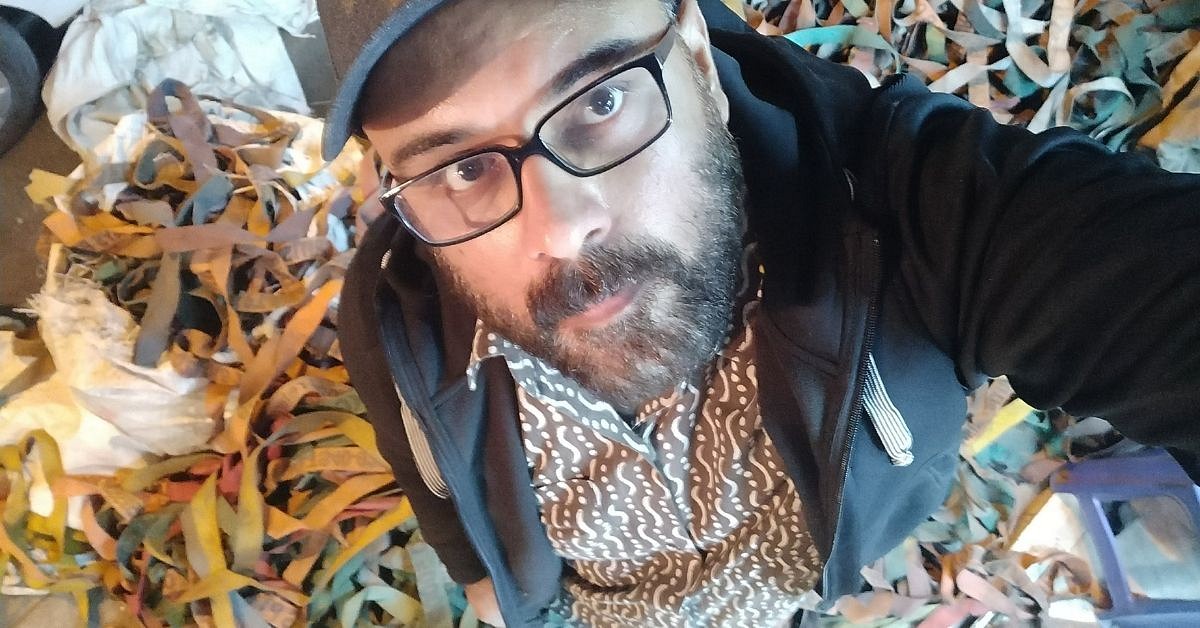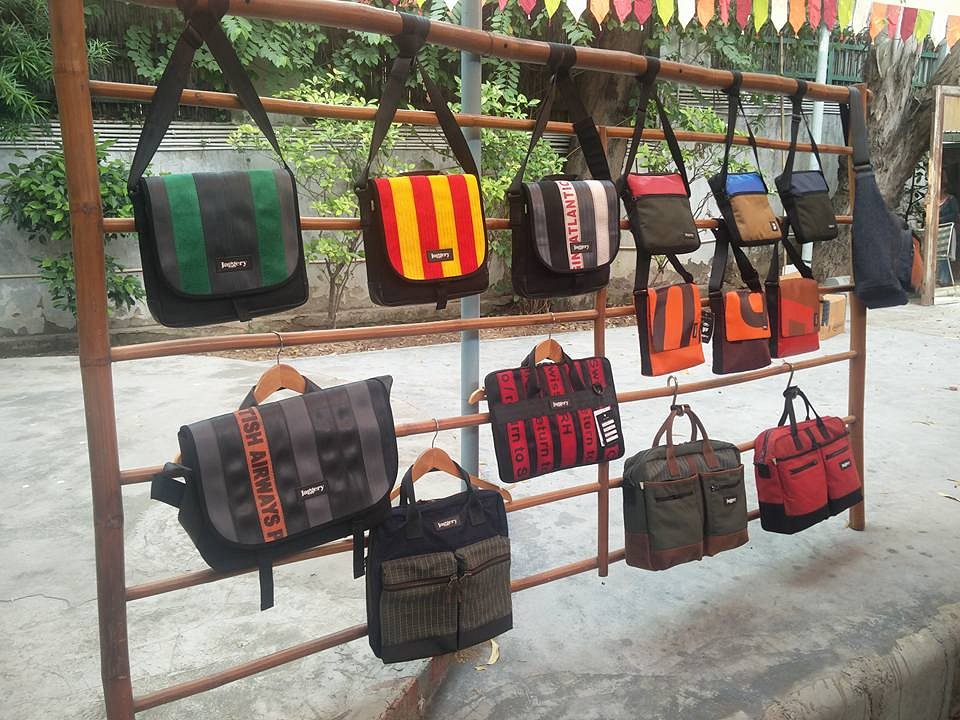Amid an increased emphasis on recycling to protect the environment, here is a man making it a reality, albeit with a unique approach.
Gurugram-based Gautam Malik, with his sustainable startup Jaggery Bags, is making sophisticated and fashionable bags using discarded, old, and torn car seat belts and cargo belts.
This, the US-returned architect says, was something different and unheard of.
“People were mostly recycling clothes and plastic waste seven years ago. I also experimented with different materials before zeroing in on car seat belts. I had read about a Swiss company that reuses tarpaulin waste to make bags. They used tarpaulins that are generally used to cover the goods in trucks. I considered doing the same in India, but the quality of tarpaulins here is not so good. The plastic used is very light. Car belts are very sturdy, with longer shelf life,” Gautam (44) explains, in conversation with The Better India.
With an investment of Rs 10 lakh, he started the company with his wife Bhavana and mother Dr Usha in 2015. “It took some time for the business to pick up, because people were not convinced about the quality of bags that were recycled from car belts,” he says.

And who could blame the consumers? India was yet to explore the huge potential recycling market. In fact, an Ipsos study in 2015 revealed that “going green” is not the “top consideration” for Indian consumers.
However, the trio kept at it, and eventually found a breakthrough in the national as well as international market.
Why would you quit a cushy job?
Gautam grew up in Delhi and studied architecture from Pune University. During a college field trip to Auroville, he saw theories of sustainable architecture come alive, and learnt more about eco-friendly construction. The lessons he learnt on sustainability stayed with him, he says.
In 2001, he moved to the US to switch his career, and pursued a master’s degree in Film and Media Studies. He got into the field of designing and graphics, and while working on different projects, noticed how people chose bags based on their personalities, he recalls.
“Design forms such an integral part of consumer behavior. That’s how I learnt about the Swiss company’s eco-friendly bags,” he says. His interest in upcycling grew, but was limited to curiosity for a while.

In 2010, he returned to India and began working with different companies, before leaving his full time job to launch his recycling startup.
So what made him quit his illustrious career for a concept that could not guarantee results?
“Through my work, I was required to do research on industrial waste. I saw the grim scenario of waste dumping across the country, and I finally made the tough decision,” he says.
Gautam started collecting old seat belts from the Mayapuri area of Delhi, and made prototypes of bags. He circulated it among his friends and family to gauge the response. His survey showed that people were interested in quirky bags that were environment friendly as well.
And how did the name ‘Jaggery Bags’ come into being? “Jaggery is widely used in India as a healthy alternative to sugar. My startup’s philosophy is also the same — to provide a healthy substitute,” he notes.
While Gautam and Bhavana handled the production and manufacturing departments, Dr Usha, a former professor of Miranda House, Delhi, took over the finances.
Dr Usha says, “I have worked as a teacher for almost 40 years. After retirement, I wanted to do something different and better. So when Gautam told me about this idea, I fully supported him in this work. Through our business, we are working towards environmental protection and also giving employment to people.”
What goes into recycling seat belts?

Jaggery Bags works with multiple discarded materials such as inflatable castles, salvaged leather, decommissioned automobile seat belts, decommissioned army truck tarps and tactical tents. They also use textile fabrics like bed sheets, table cloths, Kantha and Mashru silk.
“The raw materials are sorted, washed and cleaned. Then we design the products as per consumers’ taste. For some products, we also incorporate Kantha embroidery. Through this startup, we have so far recycled more than 4,000 meters of old and used car seat belts and over 900 meters of cargo seat belts,” says Gautam.
To build trust among consumers, the founders have explained the entire manufacturing process on their website. This has helped bring in customers from countries including Japan, France, Canada, Germany, America and Australia, Gautam says. For the domestic customers, they display their work in haats and festivals.
One customer, Delhi-based Anirudh Singhal (39), says, “I came to know about Jaggery Bags from my friends. The specialty of these bags is that they are made of ‘upcycled’ material. But still their quality and design are very good. I think that more and more people should use such bags and contribute towards the environment.”
From organisations to individuals, the company has had nearly 9,000 customers in the last five years of which 6,000 are recurring ones, Gautam says.
“In terms of turnover, too, we have received a positive response. In the first year, we managed to make a sale of around Rs 20 lakh. With each passing year, we have recorded a growth of nearly 18%,” shares Gautam.
If you want to know more about ‘Jaggery Bags’, you can email Gautam Malik at gautam@jaggery.co. You can visit their website to buy their products .
Sources:
Edited by Divya Sethu
No comments:
Post a Comment